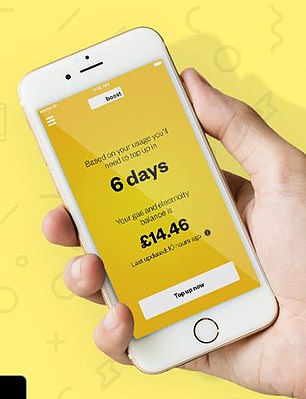Tony Hetherington is Financial Mail on Sunday’s ace investigator, fighting readers corners, revealing the truth that lies behind closed doors and winning victories for those who have been left out-of-pocket. Find out how to contact him below.
G.H writes: I was contacted in 2021 by art investment company Smith & Partner Limited, and after several calls I was persuaded to purchase a limited edition print. I paid for this and several later prints with my Halifax card.
Eventually, an excited salesman from the company called to say a gallery wanted my prints and would pay almost double my investment.
However, the gallery wanted a larger set of prints, so Smith & Partner suggested I buy 11 more for £25,600, taking my total investment to £49,250. The gallery would then pay me £96,750 for them. I paid, again with my Halifax card.
Then Smith & Partner admitted the deal was unlikely to go ahead. I hoped I was protected by using my card, but Halifax’s owner Lloyds says my payments were processed by a ‘third party’ which means all protection is lost.

Protection?: Art work sold by Smith & Partner, whose payments went through a third party
Tony Hetherington replies: I have reported over the past year or so on the art scam that was Smith & Partner Limited. It eventually collapsed last August. Preliminary figures from the liquidator show debts of around £1.26 million, though these do not include claims that poured in from investors who only realised they had been ripped off after the company had already failed.
The trick they played on you and other investors to get you to commit more money is a classic sign of a scam, and a number of figures involved in this fraud have since popped up at other firms marketing art and even whisky casks as investments.
But what you have run up against is a bigger trap still, and it exposes the faults in a safety net that we have all taken for granted for the past 50 years. In a nutshell, Section 75 of the Consumer Credit Act 1974 makes credit card issuers jointly liable alongside retailers if a purchase involving £100 to £30,000 goes wrong.
But there are strings attached. Firstly, the protection only applies to credit cards and not to debit cards. You used both for different purchases, so Section 75 does not cover the £19,600 spent with your Halifax debit card.
And secondly, the card payment must be made to the retailer, and not to a third party. This is called the ‘debtor-creditor-supplier’ chain. Break it, and you lose the legal protection of Section 75. You might think this is straightforward. Who goes into a shop to buy something, but then gives their credit card to a completely different shop before collecting the goods from the first shop? Nobody. But there is a trap – and it is a big one.
What if you are buying over the phone or online? You give your card details to the retailer, but you have no way of knowing whether they have ever been authorised by the card companies.
If they have never been allowed to accept credit cards, they might launder your payment through an authorised firm run by a pal who pockets a percentage. You get your goods, so you are none the wiser.
But if you do not get the goods, or they are defective, you can face trouble claiming from the bank that issued your credit card, because without knowing it, you have broken the debtor-creditor-supplier chain. And this is what happened to you. Your card payment actually went to a firm called MMS.Payzoneonline London.
Lloyds Bank, which owns Halifax, says that this put you outside the protection of Section 75. But hang on a minute – you had never even heard of this firm, let alone paid them, so why does this not count as an unauthorised payment which should be refunded? Tough, replied the bank, you authorised the payment and it ended up with Smith & Partner, even if it took a detour along the way which cost you all your legal rights.
Despite all this though, there is a happy ending. Halifax staff had clearly been reading The Mail on Sunday’s investigations into Smith & Partner. They told me: ‘Keeping our customers’ money safe is our priority and we have a great deal of sympathy for Mr H as the victim of a scam. We have now given a full refund to reflect the fact that we didn’t provide our usual high level of service when we first reviewed his claim.’
So, well done to Halifax and Lloyds for refunding not just your credit card cash but your debit card losses as well.
But the problem remains. UK Finance, the trade body that represents the banks, regards the whole issue as tricky and complicated, and suggested I speak to Visa and Mastercard. And Visa and Mastercard told me that decisions on Section 75 claims are up to each individual bank that issues their cards.
This is no help. Consumers need clarity, not confusion. Treasury Ministers are reviewing the 1974 law, including Section 75, arguably the most successful piece of consumer protection in recent decades. Let’s hope they close this nasty gap in the system that favours con artists and victimises cardholders.
Where is my £188 refund from Boost?

Issue: The cheque was uncashed
B.B. writes: When I left my property, there was credit on my energy meter of an agreed £188.
Boost, the renewable energy arm of Ovo, says I was sent a cheque for this amount months ago, but I have never received any such payment, despite repeated calls.
Tony Hetherington replies: When you tried to claim the credit balance, Ovo told you: ‘We have already sent you your Boost final statement of April 4, and your Boost final refund cheque for £188.56 on April 1; no credit is left on your meter.’
That seems final enough, except that nobody at Ovo took the trouble to find out whether the cheque had been cashed. And it does not seem to have occurred to anyone to wonder whether the cheque might have been sent to your old address and never reached you.
After I contacted them, officials at Ovo found their cheque had never been cashed. And they told me they did not have your new address – though you have said that you did give it to them. Ovo has now sent the missing £188.56 straight to your bank account, plus £150 on top to make up for the long delay and for having to fight to get back your own money. I am glad to say you have checked and the cash really is there this time.
If you believe you are the victim of financial wrongdoing, write to Tony Hetherington at Financial Mail, 9 Derry Street, London W8 5HY or email tony.hetherington@mailonsunday.co.uk. Because of the high volume of enquiries, personal replies cannot be given. Please send only copies of original documents, which we regret cannot be returned.
Some links in this article may be affiliate links. If you click on them we may earn a small commission. That helps us fund This Is Money, and keep it free to use. We do not write articles to promote products. We do not allow any commercial relationship to affect our editorial independence.



